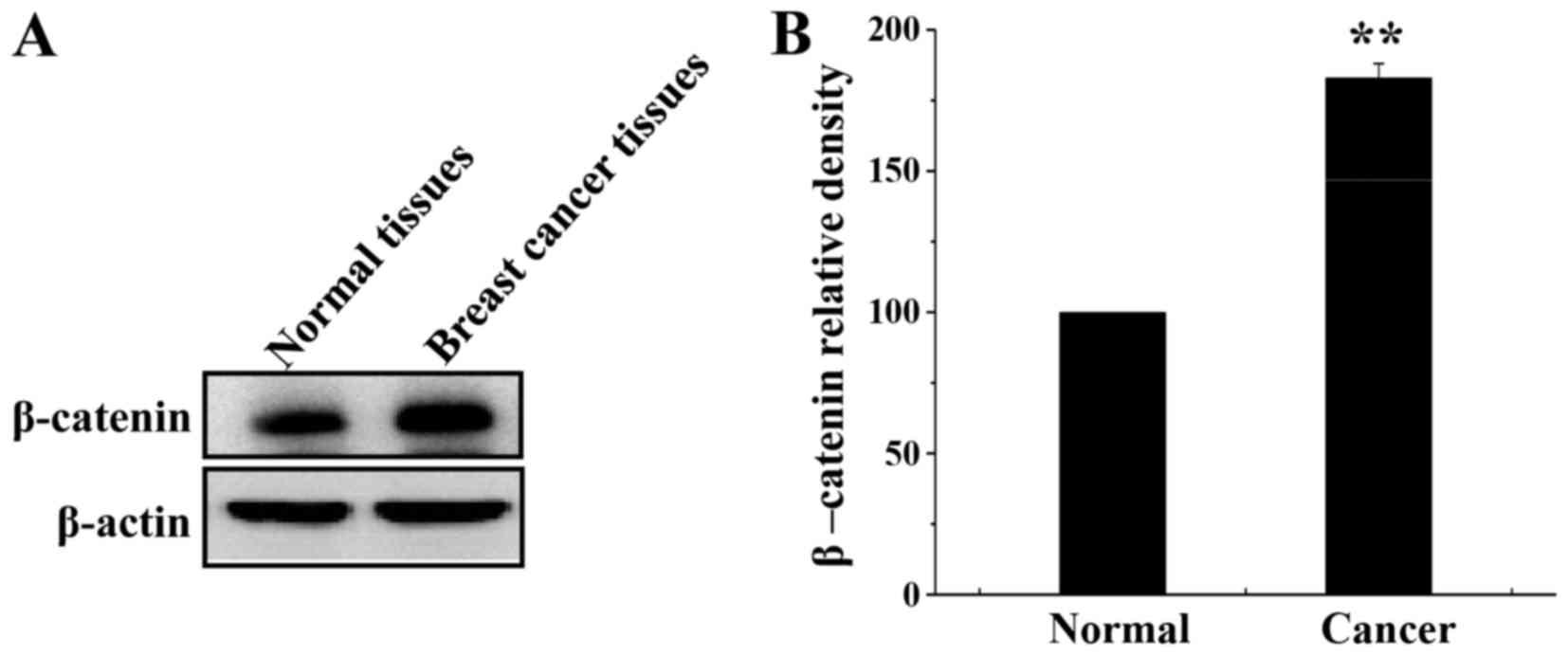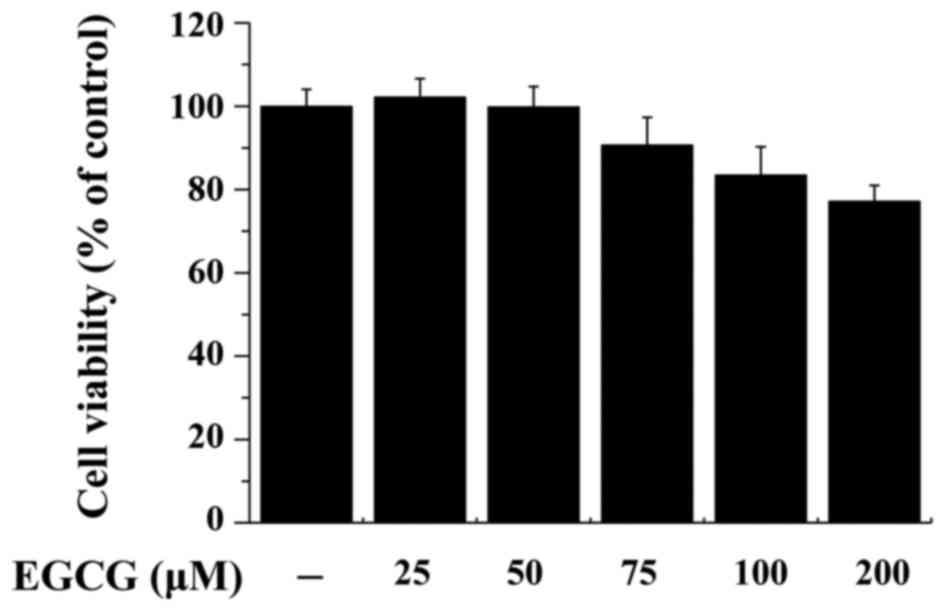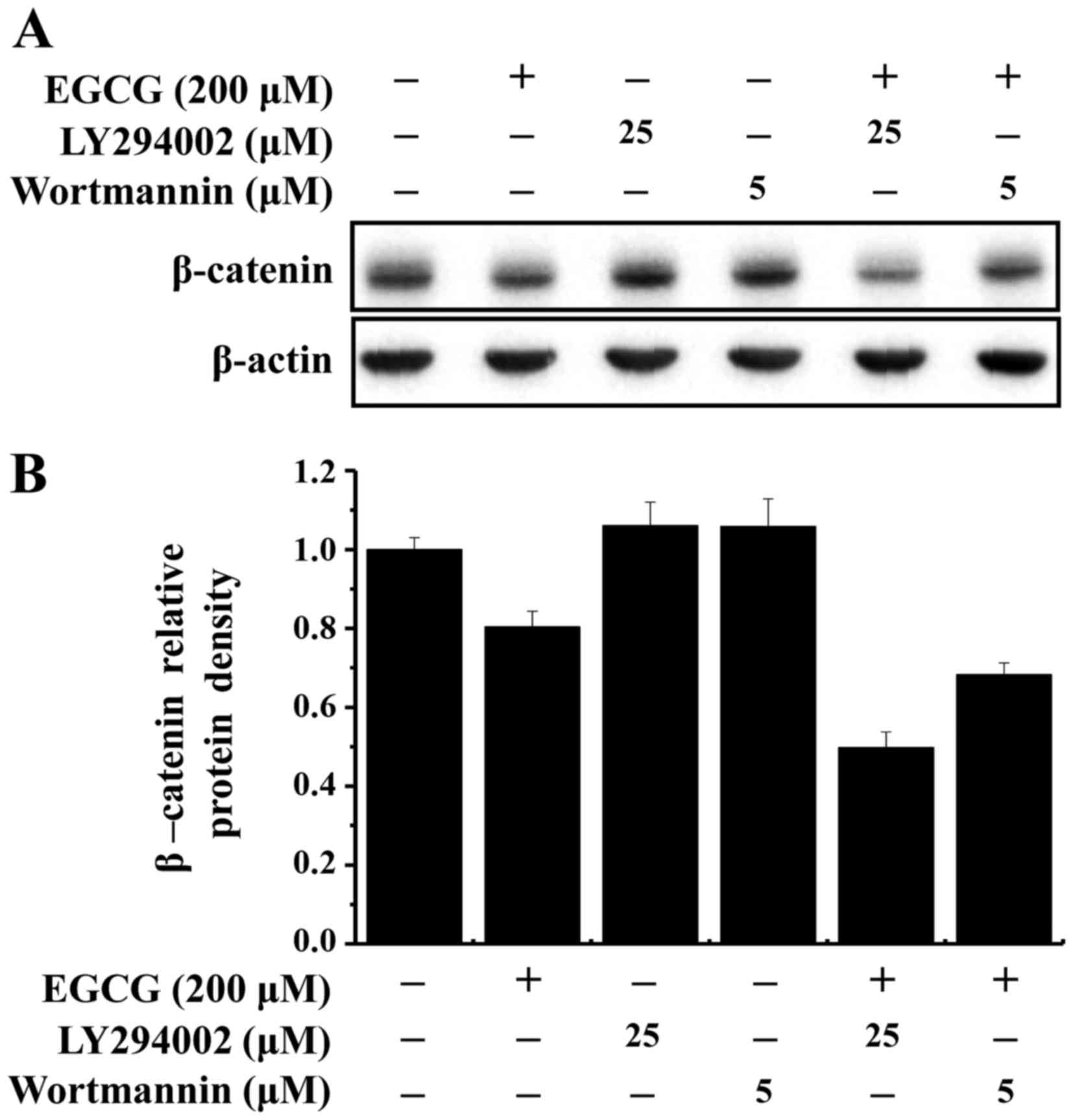|
1
|
Perou CM, Sørlie T, Eisen MB, van de Rijn
M, Jeffrey SS, Rees CA, Pollack JR, Ross DT, Johnsen H, Akslen LA,
et al: Molecular portraits of human breast tumours. Nature.
406:747–752. 2000. View
Article : Google Scholar : PubMed/NCBI
|
|
2
|
Ferlay J, Soerjomataram I, Dikshit R, Eser
S, Mathers C, Rebelo M, Parkin DM, Forman D and Bray F: Cancer
incidence and mortality worldwide: Sources, methods and major
patterns in GLOBOCAN 2012. Int J Cancer. 136:E359–E386. 2015.
View Article : Google Scholar : PubMed/NCBI
|
|
3
|
Roodi N, Bailey LR, Kao WY, Verrier CS,
Yee CJ, Dupont WD and Parl FF: Estrogen receptor gene analysis in
estrogen receptor-positive and receptor-negative primary breast
cancer. J Natl Cancer Inst. 87:446–451. 1995. View Article : Google Scholar : PubMed/NCBI
|
|
4
|
Gadducci A, Biglia N, Sismondi P and
Genazzani AR: Breast cancer and sex steroids: Critical review of
epidemiological, experimental and clinical investigations on
etiopathogenesis, chemoprevention and endocrine treatment of breast
cancer. Gynecol Endocrinol. 20:343–360. 2005. View Article : Google Scholar : PubMed/NCBI
|
|
5
|
Sartippour MR, Pietras R, Marquez-Garban
DC, Chen HW, Heber D, Henning SM, Sartippour G, Zhang L, Lu M,
Weinberg O, et al: The combination of green tea and tamoxifen is
effective against breast cancer. Carcinogenesis. 27:2424–2433.
2006. View Article : Google Scholar : PubMed/NCBI
|
|
6
|
Sak K: Chemotherapy and dietary
phytochemical agents. Chemother Res Pract.
2012:2825702012.PubMed/NCBI
|
|
7
|
Chisholm K, Bray BJ and Rosengren RJ:
Tamoxifen and epigallocatechin gallate are synergistically
cytotoxic to MDA-MB-231 human breast cancer cells. Anticancer
Drugs. 15:889–897. 2004. View Article : Google Scholar : PubMed/NCBI
|
|
8
|
Graham HN: Green tea composition,
consumption, and polyphenol chemistry. Prev Med. 21:334–350. 1992.
View Article : Google Scholar : PubMed/NCBI
|
|
9
|
Nakachi K, Matsuyama S, Miyake S, Suganuma
M and Imai K: Preventive effects of drinking green tea on cancer
and cardiovascular disease: Epidemiological evidence for multiple
targeting prevention. Biofactors. 13:49–54. 2000. View Article : Google Scholar : PubMed/NCBI
|
|
10
|
Kurahashi N, Sasazuki S, Iwasaki M, Inoue
M and Tsugane S; JPHC Study Group, : Green tea consumption and
prostate cancer risk in Japanese men: A prospective study. Am J
Epidemiol. 167:71–77. 2008. View Article : Google Scholar : PubMed/NCBI
|
|
11
|
Yang CS, Landau JM, Huang MT and Newmark
HL: Inhibition of carcinogenesis by dietary polyphenolic compounds.
Annu Rev Nutr. 21:381–406. 2001. View Article : Google Scholar : PubMed/NCBI
|
|
12
|
Zhang M, Holman CD, Huang JP and Xie X:
Green tea and the prevention of breast cancer: A case-control study
in Southeast China. Carcinogenesis. 28:1074–1078. 2007. View Article : Google Scholar : PubMed/NCBI
|
|
13
|
Hsu YC and Liou YM: The anticancer effects
of (−)-Epigalocathine-3-gallate on the signaling pathways
associated with membrane receptors in MCF-7 cells. J Cell Physiol.
226:2721–2730. 2011. View Article : Google Scholar : PubMed/NCBI
|
|
14
|
Khan N, Afaq F, Saleem M, Ahmad N and
Mukhtar H: Targeting multiple signaling pathways by green tea
polyphenol (−)-epigallocatechin-3-gallate. Cancer Res.
66:2500–2505. 2006. View Article : Google Scholar : PubMed/NCBI
|
|
15
|
Stuart EC, Scandlyn MJ and Rosengren RJ:
Role of epigallocatechin gallate (EGCG) in the treatment of breast
and prostate cancer. Life Sci. 79:2329–2336. 2006. View Article : Google Scholar : PubMed/NCBI
|
|
16
|
Thangapazham RL, Singh AK, Sharma A,
Warren J, Gaddipati JP and Maheshwari RK: Green tea polyphenols and
its constituent epigallocatechin gallate inhibits proliferation of
human breast cancer cells in vitro and in vivo. Cancer Lett.
245:232–241. 2007. View Article : Google Scholar : PubMed/NCBI
|
|
17
|
Goodin MG, Fertuck KC, Zacharewski TR and
Rosengren RJ: Estrogen receptor-mediated actions of polyphenolic
catechins in vivo and in vitro. Toxicol Sci. 69:354–361. 2002.
View Article : Google Scholar : PubMed/NCBI
|
|
18
|
Roy AM, Baliga MS and Katiyar SK:
Epigallocatechin-3-gallate induces apoptosis in estrogen
receptor-negative human breast carcinoma cells via modulation in
protein expression of p53 and Bax and caspase-3 activation. Mol
Cancer Ther. 4:81–90. 2005.PubMed/NCBI
|
|
19
|
Boras-Granic K and Wysolmerski JJ: Wnt
signaling in breast organogenesis. Organogenesis. 4:116–122. 2008.
View Article : Google Scholar : PubMed/NCBI
|
|
20
|
Amado NG, Fonseca BF, Cerqueira DM, Neto
VM and Abreu JG: Flavonoids: Potential Wnt/beta-catenin signaling
modulators in cancer. Life Sci. 89:545–554. 2011. View Article : Google Scholar : PubMed/NCBI
|
|
21
|
Loh YN, Hedditch EL, Baker LA, Jary E,
Ward RL and Ford CE: The Wnt signaling pathway is upregulated in an
in vitro model of acquired tamoxifen resistant breast cancer. BMC
Cancer. 13:1742013. View Article : Google Scholar : PubMed/NCBI
|
|
22
|
Edge SB, Byrd DR, Compton CC, Fritz AG,
Greene FI and Trotti A III: Part VII breastAJCC Cancer Staging
Manual. 7th. Springer; New York, NY: pp. 347–376. 2010
|
|
23
|
Parkin DM, Bray F, Ferlay J and Pisani P:
Global cancer statistics, 2002. CA Cancer J Clin. 55:74–108. 2005.
View Article : Google Scholar : PubMed/NCBI
|
|
24
|
Piccart-Gebhart MJ, Procter M,
Leyland-Jones B, Goldhirsch A, Untch M, Smith I, Gianni L, Baselga
J, Bell R, Jackisch C, et al: Trastuzumab after adjuvant
chemotherapy in HER2-positive breast cancer. N Engl J Med.
353:1659–1672. 2005. View Article : Google Scholar : PubMed/NCBI
|
|
25
|
Foulkes WD, Smith IE and Reis-Filho JS:
Triple-negative breast cancer. N Engl J Med. 363:1938–1948. 2010.
View Article : Google Scholar : PubMed/NCBI
|
|
26
|
López-Knowles E, Zardawi SJ, McNeil CM,
Millar EK, Crea P, Musgrove EA, Sutherland RL and O'Toole SA:
Cytoplasmic localization of beta-catenin is a marker of poor
outcome in breast cancer patients. Cancer Epidemiol Biomarkers
Prev. 19:301–309. 2010. View Article : Google Scholar : PubMed/NCBI
|
|
27
|
Nelson CM and Chen CS: Cell-cell signaling
by direct contact increases cell proliferation via a PI3K-dependent
signal. FEBS Lett. 514:238–242. 2002. View Article : Google Scholar : PubMed/NCBI
|
|
28
|
Toker A and Newton AC: Cellular signaling:
Pivoting around PDK-1. Cell. 103:185–188. 2000. View Article : Google Scholar : PubMed/NCBI
|
|
29
|
Peairs A, Dai R, Gan L, Shimp S, Rylander
MN, Li L and Reilly CM: Epigallocatechin-3-gallate (EGCG)
attenuates inflammation in MRL/lpr mouse mesangial cells. Cell Mol
Immunol. 7:123–132. 2010.PubMed/NCBI
|


















